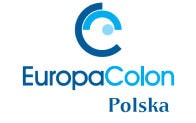Effect of Prehabilitation in Gastroesophageal Adenocarcinoma: Study Protocol of a Multicentric, Randomised Control Trial
NCT02780921
Interventional
Phase 3
Unknown status
PREHAB
Perioperative chemotherapy is the gold standard treatment in the resectable and advanced gastroesophageal adenocarcinoma. The efficacy of this strategy has been demonstrated in two randomized studies (1,2). It reduces tumour size before surgery, treats micrometastases and evaluates chemosensitivity. Disease free and overall survival rates were significantly improved with perioperative chemotherapy compared to surgery alone. However, the limitation of these studies is that among all patients requiring chemotherapy, almost 70% of patients will not have the complete sequence. This sequence is defined by the administration of 2 to 4 cycles before and 2 to 4 cycles after the surgery, according to the protocol. The major cause of absence or impossibility of realization of postoperative chemotherapy was the presence of postoperative complication, postoperative serious asthenia and impaired nutritional and physical status (1,2). Poor physical condition assessed by cardiopulmonary exercise testing, reflecting a reduced physiological reserve, is predictive of postoperative complications (3,4). A physical training, even during a short period and on a various population, is beneficial in improving physical condition, cardiopulmonary function and muscular mass of the patient (5-8). A prehabilitation over a 6 week period between surgical consultation and surgery decreases postoperative morbidity and the hospital stay in cardiovascular surgery but no study has ever been performed in the gastric or oesophageal cancer (7,9). Prehabilitation revolves around three axes: 1) a physical training based on initial cardiopulmonary exercise testing (VO2peak, anaerobic threshold (AT) and 6-min walk test (6MWT)), 3 times by week, supervised by a physical therapist 2) a nutritional care to ensure the compliance of the nutrition program and adapt the nutritional management based on protein and energy needs and on the level of spontaneous oral intake and 2) a psychological treatment by a psychologist to reduce preoperative anxiety. To our knowledge, no study ever focused on the gastroesophageal cancer. The benefit of prehabilitation in this cancer may be particularly important because 1) this surgery is associated with a high postoperative morbidity (40%, especially respiratory) and mortality (5%) 2) the physical and nutritional status of these patients is often precarious (cancer cachexia, gastroesophageal obstruction), and 3) the need to preoperative chemotherapy declines physical reserves and is associated with a lengthening of the time between consultation and surgery of more than 3 months (10). Also, the investigators hypothesize that with a physical training, a personalized nutritional support and a psychologist management may decrease postoperative complications, increase postoperative nutritional status and so, would allow for more patients to receive their full cancer treatment. The aim of this study was to evaluate, in gastroesophageal adenocarcinoma, the effect of prehabilitation compared to conventional care, the percentage of patients reaching the complete oncological treatment decided in a multidisciplinary tumour board.
Jan 31,2017
All
18 Years
N/A
18 Years
N/A
120

